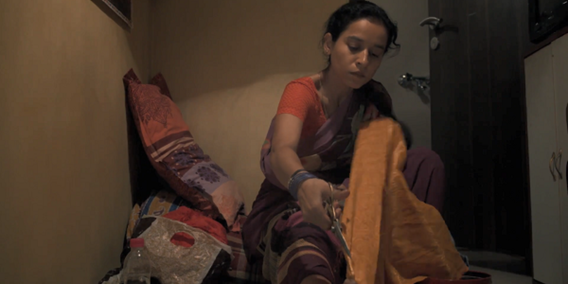We're all striving to achieve our goals, but sometimes that drive can push us to the point of exhaustion, both mentally and emotionally. You know that feeling when your to-do list seems endless, your energy is running on empty, and even your favorite activities feel like chores? Yep, that’s burnout knocking at your door.
What is Burnout?
Burnout is more than just feeling tired. It's a state of emotional, physical, and mental exhaustion caused by prolonged or excessive stress. It's that feeling of being completely drained, cynical about your work, and doubting your accomplishments. Imagine your phone battery constantly in the red – that’s burnout in a nutshell.
Here's the breakdown of the key components:
-
Emotional Exhaustion: Feeling depleted, drained, and unable to cope.
-
Cynicism (or Depersonalization): A sense of detachment from your work or responsibilities.
-
Reduced Accomplishment: Feeling ineffective, incompetent, and doubting your achievements.
Recognizing Burnout: Signs to Watch Out For
Catching burnout early is crucial. Here are some signs to be aware of:
-
Persistent Fatigue: Feeling tired no matter how much you rest.
-
Increased Irritability: Snapping at others or feeling easily frustrated.
-
Difficulty Concentrating: Struggling to focus or remember things.
-
Loss of Motivation: Feeling disinterested in work or activities you used to enjoy.
-
Sleep Disturbances: Having trouble falling asleep or staying asleep.
-
Physical Symptoms: Headaches, stomach problems, or muscle tension.
-
Increased Isolation: Withdrawing from friends, family, and social activities.
-
Negative Self-Talk: Constantly criticizing yourself or feeling inadequate.
-
Frequent Illnesses: A weakened immune system makes you more susceptible to colds or other illnesses.
-
Using food, drugs, or alcohol to cope: Relying on external substances to cope with day to day activities.
Preventing Burnout: Building a Sustainable Lifestyle
Prevention is always better than cure. Here are some strategies to help you build a lifestyle that minimizes the risk of burnout:
-
Set Boundaries:
-
Learn to say "no" to additional commitments when you're already feeling overwhelmed.
-
Establish clear boundaries between work and personal life. Turn off work notifications after hours and designate specific times for relaxation and leisure activities.
-
Don't be afraid to push back on unreasonable demands or expectations.
-
Prioritize Self-Care:
-
Make time for activities that nourish your mind, body, and soul.
-
Engage in regular exercise, eat nutritious foods, and get enough sleep.
-
Practice mindfulness or meditation to reduce stress and promote relaxation.
-
Spend time in nature to recharge your batteries.
-
Manage Your Time Effectively:
-
Break tasks into smaller, manageable steps.
-
Prioritize tasks based on importance and urgency.
-
Delegate tasks when possible.
-
Avoid multitasking, which can increase stress and reduce productivity.
-
Cultivate Meaningful Connections:
-
Spend time with friends and family who provide support and encouragement.
-
Join a club or organization that aligns with your interests.
-
Volunteer or engage in activities that give you a sense of purpose and connection to something larger than yourself.
-
Seek Support:
-
Talk to a therapist, counselor, or trusted friend about your feelings and experiences.
-
Join a support group for people experiencing burnout.
-
Don't be afraid to ask for help when you need it.
-
Align Career with Purpose:
-
Reflect on your strengths, interests, and values to guide your career choices.
-
Seek out opportunities for growth and development in your current role.
-
If you're feeling unfulfilled or misaligned, consider exploring alternative career paths that better align with your values and passions.
-
Take Breaks and Vacations:
-
Schedule regular breaks throughout the day to rest and recharge.
-
Plan longer vacations or getaways to disconnect from work and recharge your batteries.
-
Use your time off to engage in activities that bring you joy and relaxation.
Recovering from Burnout: Rebuilding Your Well-being
If you're already experiencing burnout, don't despair. Recovery is possible with the right strategies:
-
Acknowledge the Problem:
Admit to yourself that you're experiencing burnout and that you need to take steps to address it.
-
Take Time Off:
If possible, take a leave of absence from work to focus on your well-being. Use this time to rest, relax, and engage in activities that bring you joy. Avoid checking emails or engaging in work-related tasks during your time off.
-
Re-evaluate Your Priorities:
Take time to reflect on what's truly important to you in life.Identify areas where you may be overcommitting or neglecting your own needs. Make conscious choices to prioritize activities and relationships that align with your values and goals.
-
Seek Professional Help:
Consider working with a therapist or counselor to develop coping strategies and address any underlying issues contributing to your burnout.A therapist can provide support, guidance, and tools to help you navigate the recovery process and build resilience.
Burnout is a real challenge in today's fast-paced world, but it's not something you have to face alone. By recognizing the signs, implementing preventive strategies, and seeking support when needed, you can beat burnout and create a more balanced, fulfilling life for yourself. Remember, taking care of your well-being is essential for your long-term success and happiness.






